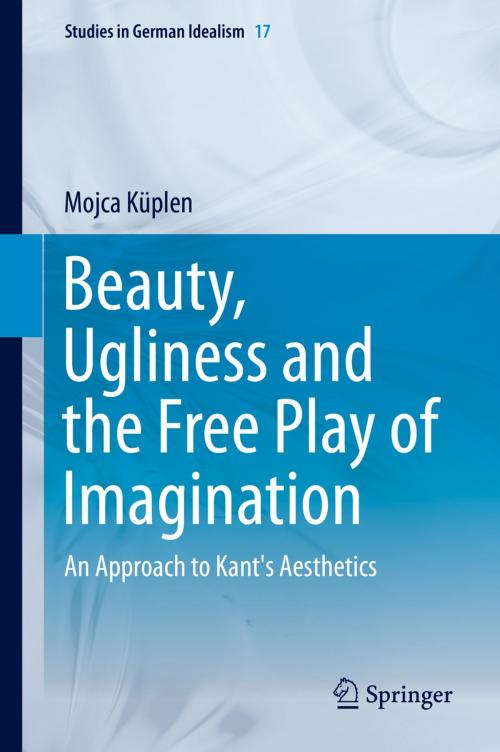Beauty, Ugliness and the Free Play of Imagination
An Approach to Kant's Aesthetics
Nonfiction, Religion & Spirituality, Philosophy, Aesthetics, Fiction & Literature, Literary Theory & Criticism, Ancient & Classical| Author: | Mojca Küplen | ISBN: | 9783319198996 |
| Publisher: | Springer International Publishing | Publication: | July 15, 2015 |
| Imprint: | Springer | Language: | English |
| Author: | Mojca Küplen |
| ISBN: | 9783319198996 |
| Publisher: | Springer International Publishing |
| Publication: | July 15, 2015 |
| Imprint: | Springer |
| Language: | English |
This book presents a solution to the problem known in philosophical aesthetics as the paradox of ugliness, namely, how an object that is displeasing can retain our attention and be greatly appreciated. It does this by exploring and refining the most sophisticated and thoroughly worked out theoretical framework of philosophical aesthetics, Kant’s theory of taste, which was put forward in part one of the Critique of the Power of Judgment. The book explores the possibility of incorporating ugliness, a negative aesthetic concept, into the overall Kantian aesthetic picture. It addresses a debate of the last two decades over whether Kant's aesthetics should allow for a pure aesthetic judgment of ugliness. The book critically reviews the main interpretations of Kant’s central notion of the free play of imagination and understanding and offers a new interpretation of free play, one that allows for the possibility of a disharmonious state of mind and ugliness.
In addition, the book also applies an interpretation of ugliness in Kant’s aesthetics to resolve certain issues that have been raised in contemporary aesthetics, namely the possibility of appreciating artistic and natural ugliness and the role of disgust in artistic representation.
Offering a theoretical and practical analysis of different kinds of negative aesthetic experiences, this book will help readers acquire a better understanding of his or her own evaluative processes, which may be helpful in coping with complex aesthetic experiences. Readers will gain unique insight into how ugliness can be offensive, yet, at the same time, fascinating, interesting and captivating.
This book presents a solution to the problem known in philosophical aesthetics as the paradox of ugliness, namely, how an object that is displeasing can retain our attention and be greatly appreciated. It does this by exploring and refining the most sophisticated and thoroughly worked out theoretical framework of philosophical aesthetics, Kant’s theory of taste, which was put forward in part one of the Critique of the Power of Judgment. The book explores the possibility of incorporating ugliness, a negative aesthetic concept, into the overall Kantian aesthetic picture. It addresses a debate of the last two decades over whether Kant's aesthetics should allow for a pure aesthetic judgment of ugliness. The book critically reviews the main interpretations of Kant’s central notion of the free play of imagination and understanding and offers a new interpretation of free play, one that allows for the possibility of a disharmonious state of mind and ugliness.
In addition, the book also applies an interpretation of ugliness in Kant’s aesthetics to resolve certain issues that have been raised in contemporary aesthetics, namely the possibility of appreciating artistic and natural ugliness and the role of disgust in artistic representation.
Offering a theoretical and practical analysis of different kinds of negative aesthetic experiences, this book will help readers acquire a better understanding of his or her own evaluative processes, which may be helpful in coping with complex aesthetic experiences. Readers will gain unique insight into how ugliness can be offensive, yet, at the same time, fascinating, interesting and captivating.















